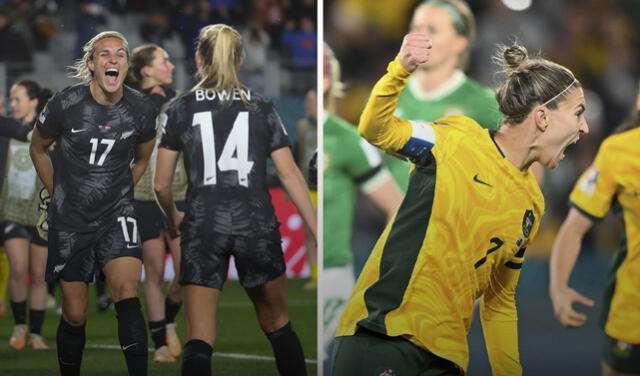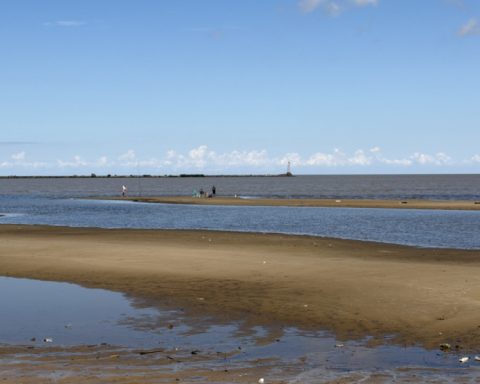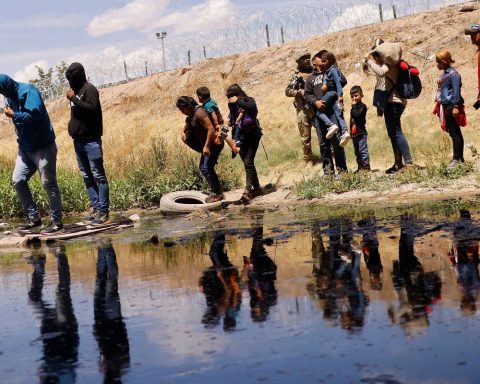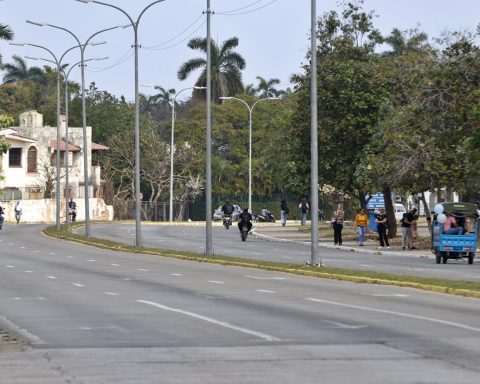Both matches recorded a cumulative attendance of more than 115,000 viewers, a record attendance for women’s football.
In the opening match of the opening day, New Zealand posted an upset win over Norway, her first victory in a major women’s soccer tournament.
The New Zealand “Football Ferns” beat with a score by forward Hanah Wilkinson at minute 48 before 42,137 fans who braved the winter cold (austral) to support their team at Eden Park in Auckland.
The action later moved to Sydney, where Australia beat Ireland with a penalty goal from defender Steph Catley in front of 75,784 spectators, a sign of interest in this tournament that aims to be the most followed and profitable in the history of women’s football.
The New Zealand-Norway match began with a minute’s silence for the victims of a shooting on Thursday in Auckland that left two dead, in addition to the attacker.
Police believe the attack is not related to the World Cup, nor was it politically or ideologically motivated, and its perpetrator had a history of family violence and mental health problems.
– Start marked by shooting –
The shooting in Auckland did not alter the opening of the World Cup, but it surprised some of the participating teams hosted in that city, such as Norway or the current champion United States.
The Norwegians, staying near the site of the incidentThey commented that several players woke up to the noise of the emergency vehicles without knowing what it was, but that they felt “safe” and continued their preparations as normal.
The New Zealand triumph was the work of Hannah Wilkinson, a forward of speed and power who took advantage of a low cross from Jacqui Hand to score the only goal of the match.
At the close of the game the locals had the opportunity to extend the score with a penalty kick, but midfielder Ria Percival hit the tube.
The New Zealand players came away visibly emotional and teary-eyed after claiming their first World Cup victory.
The tournament, which runs through August 20, grew from 24 teams in the 2019 edition in France to 32 and is being held in two countries for the first time, with nine host cities in Australia and New Zealand.
– Australia win without Kerr –
New Zealand entered the World Cup without much pretension, after five straight tournaments without a single victory.
By contrast, Australia, tenth in the world ranking, came with expectations of advancing from the initial phase.
In their game on Thursday, the “Matildas” fThey were more persistent in attacking and controlling the ball during the first half, in which the Irish set up a defensive lock with quick counterattacks.
The scheme paid off in the early 45 minutes for Ireland, debutants in a major Women’s World Cup, while Australia accused the absence of its emblematic forward Sam Kerr, suffering from a calf injury that will keep her away from the courts for at least one more game.
Defender Steph Catley broke the bolt with a penalty shot in the 52nd minute, after the attacker Hayley Raso was knocked down in the area.
Ireland changed their disposition in the last 20 minutes, advancing lines in search of the tie, and managed to put the Australian defense in trouble.
The match ended with Australia taking care of the minimum advantage on the scoreboard against the Irish attacks.
The binational tournament is on its way to beating attendance records.
The FIFA authorities assure that 1,375,000 tickets have already been soldmore than in the entire World Cup in France 2019.
However, everything indicates that the bulk of those tickets were sold in Australia and to a much lesser extent in New Zealand, where there is less enthusiasm for the Women’s World Cup.
“The only message I want to give is seize the momentbe proud of what you have achieved here in New Zealand, in Australia,” FIFA president Gianni Infantino told a news conference in Auckland, urging fans to buy tickets.
The expanded World Cup also improved the cash prize, with $30,000 for each participating player.
For the coach of Spain, Jorge Vilda, the World Cup in Australia and New Zealand marks an evolution of women’s football towards greater professionalism.
“Every World Cup and every World Cups that come are going to be more even, because people prepare better, the distance from the big teams is shorter, the players are more and more professional,” said Vilda.
















